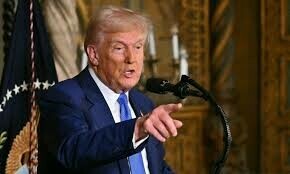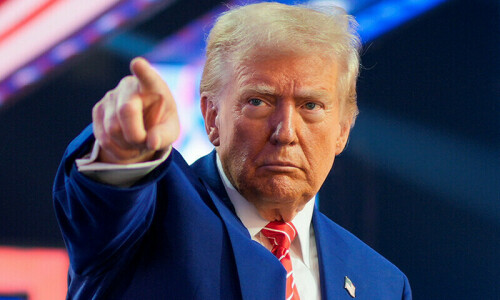THE Economic Survey released on Thursday paints a picture of an economy in deep distress. Since the period covered by the data includes mostly the first nine months of the fiscal year, meaning July 2019 to March 2020, much of what is portrayed cannot be attributed to the disruptions from Covid-19. The numbers betray troubling indicators deep inside the grooves of the economy, beyond the headline GDP growth figure, which is negative 0.38pc, a rare occurrence.
A slightly closer look shows some startling numbers. For example, credit to the private sector fell sharply from Rs554.7bn last year to Rs187.3bn this year in the July to March period. This is a marked decline and shows a sharp deceleration underway in private sector activity. The breakdown paints an even starker picture. Working capital loans, for example, dropped from Rs369bn last year to Rs28.8bn this year in the same period. Loans for fixed investment dropped from Rs83.1bn last year to negative Rs5.2bn this year, meaning on net there was negative investment in the country this fiscal year. At the same time, the amount of foregone revenue from tax exemptions jumped to Rs1.15tr this year. Only a few years ago, the figure was less than half this amount. The sharp increase in exemptions given to businesses over the two years that this government has been power has no doubt contributed to this picture.
What is noteworthy here is that despite a string of ‘incentives’ and ‘packages’ targeted at specific industries, there has been a sharp deceleration in the pace of economic activity in the country. The cost of these special incentive packages is evident at least partially in foregone revenue, but the benefits don’t show up in demand for working capital or investment. The assumption under which the government has repeatedly handed out incentives to the wealthy is that ultimately this will benefit the poor through increased employment and business activity. But it seems these wealthy investors prefer to retain much of the benefit from the packages for themselves, and very little actually reaches the poor. For the forthcoming fiscal year, the government should turn this approach on its head. Instead of the rich, it should put the poor at the centre of its economic policy agenda. Let the poor be the beneficiaries of the state’s largesse, and let the benefits trickle up rather than down. Putting money in the hands of the poor and unemployed means it will return to the economy in the form of demand, and that demand should be the signal for wealthy investors for where to invest. This approach has the added benefit of giving us more durable and organic growth rooted in the needs of the people directly. The budget provides the opportunity to make this shift. Investing in the rich is providing meagre dividends.
Published in Dawn, June 12th, 2020











































